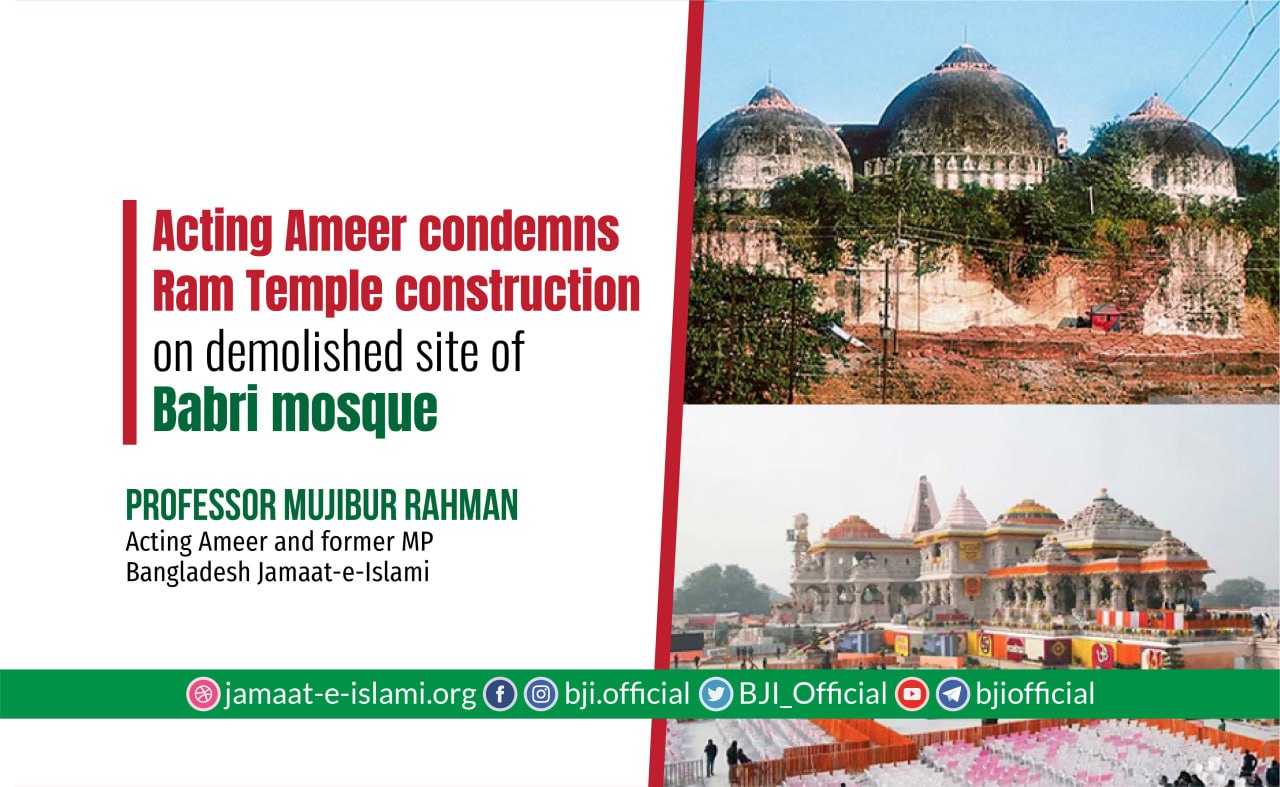Acting Ameer of Bangladesh Jamaat-e-Islami and former lawmaker Professor Mujibur Rahman has issued a statement on 23rd January, 2024 in which he stated that a Ram Mandir has been constructed and inaugurated in Ayodhya, Uttar Pradesh, India. The site is the former location of the Babri Masjid which was built in 16th century CE.
The mosque was attacked and demolished by a Hindu nationalist mob on 6th December of 1992, which ignited communal violence across the Indian subcontinent. After 10 years of demolishing the site, The Archaeological Survey of India (ASI) conducted an excavation of the disputed site on the orders of the Allahabad High Court.
The excavation period was short due to court time constraints, lasting only 15 days. The report of the excavation concluded that there were the ruins of "a massive structure" beneath the ruins of the mosque which was "indicative of remains which are distinctive features found associated with the temples of north India", but found no evidence that the structure was specifically demolished for the construction of the Babri Masjid. In accordance, ASI submitted a 574 pages report in the court. But ignoring such fact findings of the said report, the extremist Hindu government led by Prime Minister Narendra Modi inaugurated the Ram Temple in the site of historic Babri Mosque on 22nd January.
Although, the constitution of India recommended freedom of religious exercises but the incumbent Modi government never endorsed it. They defied the truth and the critic’s words and constructed the temple on the site of a mosque. This incident has hurt the religious sentiment of millions of Muslims across the globe. On behalf of the people of Bangladesh, we are vehemently protesting the construction of Ram Temple. Besides, we are drawing the attention of all democratic forces and the Muslim Ummah to protest against the interreference of the Indian government upon the religious rights of the people.
